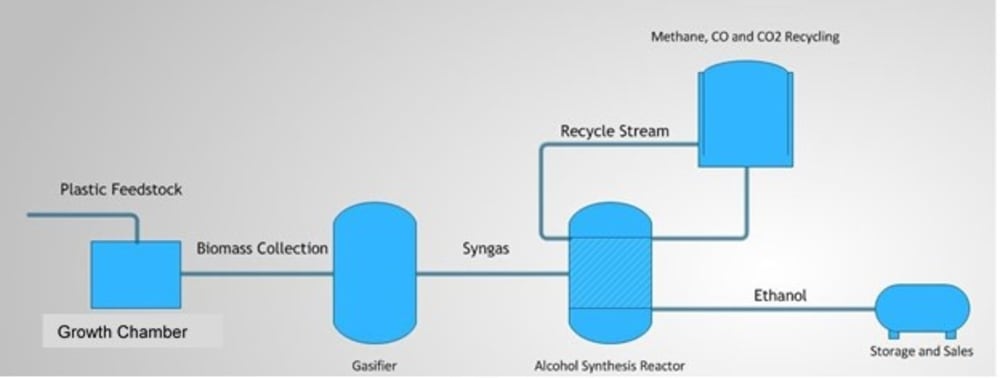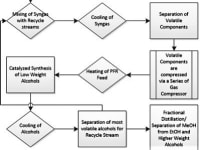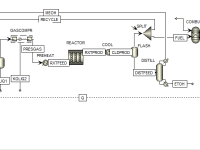
The protection of the environment has become one of the most important issues in the U.S. Many entities ranging from federal programs to small non-profits, have been making efforts to help preserve our planet for future generations. However, in order to significantly reduce our carbon footprint, two hurdles must be cleared: the reduction of pollution and the reuse of waste materials.
Currently, various obstacles are hindering progress. Even though agricultural feedstocks like corn and sugarcane can be used to create biofuels, it is not economically viable to do so, as the growth of corn and its conversion to ethanol requires almost as much energy as that which is produced. Furthermore, competition between biofuel companies and food distributors has increased the prices of these feedstocks.
In 2015, nearly 300 million tons of plastics were produced and only 6% of that was recycled. This rate continues to rise each year, while the main disposal methods are limited to incineration, which releases hazardous gases like dioxins, and consolidation into landfills, which maintains build-up. Either way, both methods have detrimental effects on the environment, many of which may be irreversible.
To mediate these environmental concerns, we at PUR-Ethanol created a novel, adaptable process which allows for plastic waste to be recycled/repurposed into biofuel without releasing any hazardous chemicals. This is accomplished by utilizing a proprietary microorganism that naturally consumes polyurethane plastic (PUR) to produce a biomass, which is gasified to produce syngas and synthesized into ethanol. In effect, our process can be used to diminish the comprehensive effects of plastics on the environment, while presenting a new option for biofuel production with a more abundant, noncompetitive feedstock.
While there are a number of microorganisms capable of consuming plastics, our particular anaerobic species is capable of doing so at a significantly faster rate (half-time: 5 days), making it perfect for large-scale fuel production. Moreover, other plastic-to-fuel concepts utilize plasma-enhanced melting, which requires significantly more energy and capital. In addition, the particular species used for our process is quite susceptible to guided mutation, as it can be easily “trained” to consume other plastics, such as polyesters. This can be quite valuable, as continued innovation offsets risk and this particular innovation is all but guaranteed.
Our process stands to revolutionize the fuel industry, as it is capable of earning $26 million/plant annually (i.e. 4 plants = $104 million) with a payoff period of only 2.85 years. However, this is only at a standard feed rate of 100 kmol/hr, which can be increased/optimized based on production requirements. Furthermore, if this process is retrofitted into an existing fuel production facility as part of a co-gasification system, initial costs would be significantly less, with the same annual revenue and a payoff period of less than 2 years. Partnering with recycling plants would also contribute to increasing efficiency, as would the sale of valuable byproducts like natural gas and unique secondary metabolites; the possibilities are nearly endless!
Follow us on Twitter @PUR_Ethanol and watch our intro video at:
https://www.youtube.com/watch?v=_spW8lcOm5k&feature=youtu.be!
-
Awards
-
 2020 Top 100 Entries
2020 Top 100 Entries
Like this entry?
-
About the Entrant
- Name:Patrick Colossi
- Type of entry:individual
- Software used for this entry:Aspen Plus
- Patent status:pending








